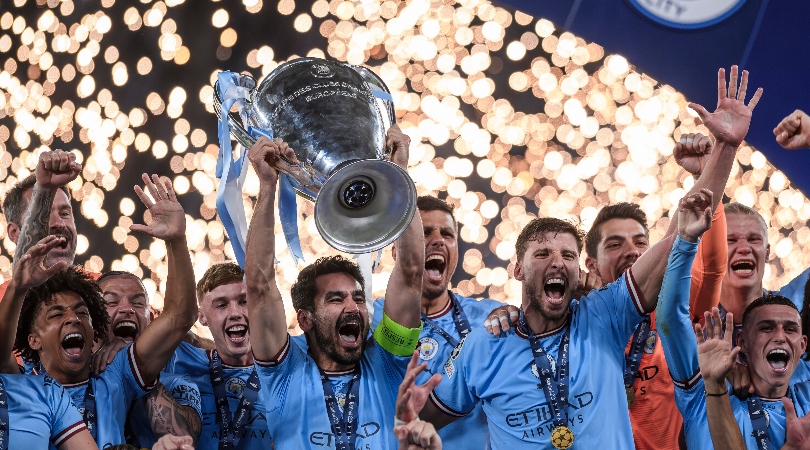Best of the Premier League weekend: FFT's top performance, player and gripe
Chelsea's ominous recent form took yet another step forward, while Mousa Dembele and Paul Pogba proved key to their respective teams in FourFourTwo's latest 'Best of the Premier League weekend'...
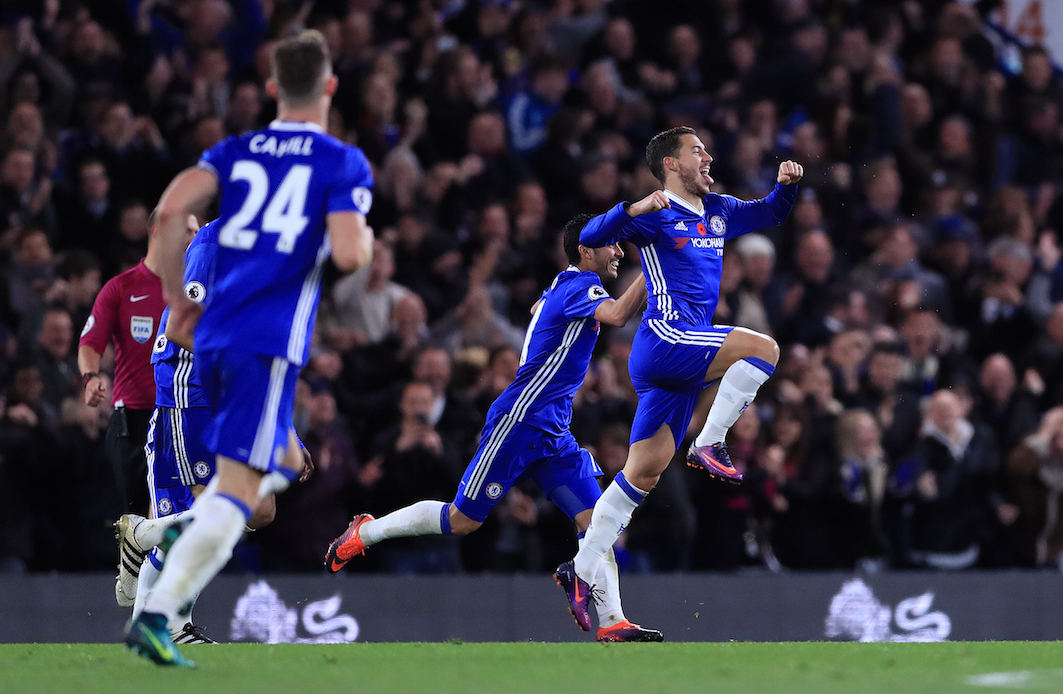
Performance of the Weekend: Chelsea (against Everton)
For the third week in a row.
Heading into this weekend, Everton had only conceded more than one goal in a single Premier League fixture (a 2-1 defeat by Burnley last month). They're not Roberto Martinez's flimsy outfit any more, but a disciplined side who until 5.30pm on Saturday had the second-best defensive record in the division.
Chelsea have found stability and resilience in their new shape, but are also discovering style and accuracy
But Chelsea made them look helpless. Throughout October, Antonio Conte's players grew accustomed to his 3-4-2-1 formation, improving each week and gradually banishing the memory of that horrendous September loss to Arsenal.
Two goals without reply became five, then nine, and eventually 11. But Saturday was something else entirely – a result beyond just the extension of a positive statistic. Chelsea have found stability and resilience in their new shape, but are also discovering style and accuracy. That was the chief take-away from Stamford Bridge: not the host's organisation or even their attacking power, but the speed at which they played. It was the "shackles off" moment and the final purge of the post-Mourinho hesitation and ambivalent football that was left for his successor to inherit.
Conte has been successful because of the instructional influence he's been able to wield over his players and because of how pliable they've proven to be. But if wins over Hull, Manchester United and Southampton felt scripted, this was more of an ad-libbed performance – the Italian still pranced in his technical area and lived every phase of the game, but the strings had been cut and his puppets had unequivocally grown minds of their own. It was still "do as I say" football, but with a palpable instinct and an impulsive verve.
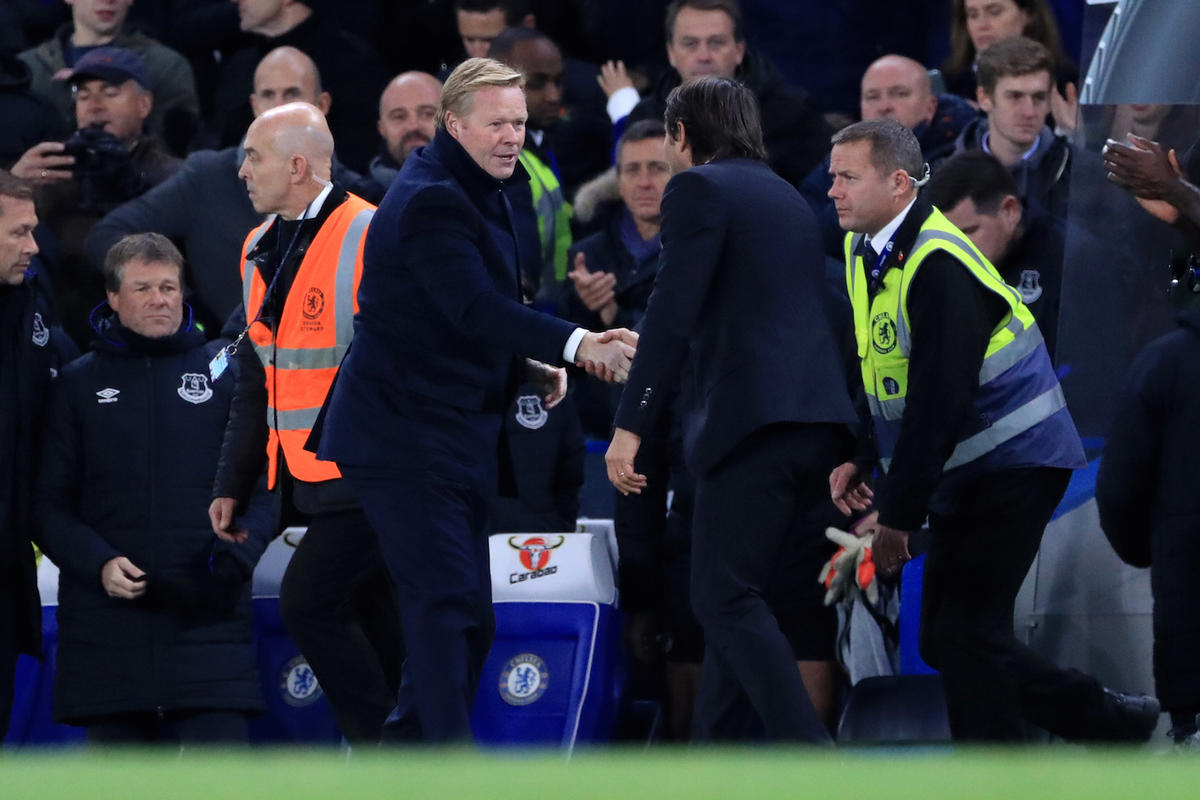
Ronald Koeman, though presumably incensed by what his side had been reduced to, was effusive in his praise:
Get FourFourTwo Newsletter
The best features, fun and footballing quizzes, straight to your inbox every week.
"I never saw a team playing so well (in) this system. This system is very difficult to play against, the movement of the players, (Eden) Hazard."
But though a complete performance, it was still possible to glimpse this new Chelsea from individual moments – and none were more revealing than a sequence at the end of the first half which could – and should – have seen Diego Costa score a fourth goal. In the build-up, Pedro's neat flick around Ashley Williams was both descriptive of his own form and symptomatic of where his team is as a group.
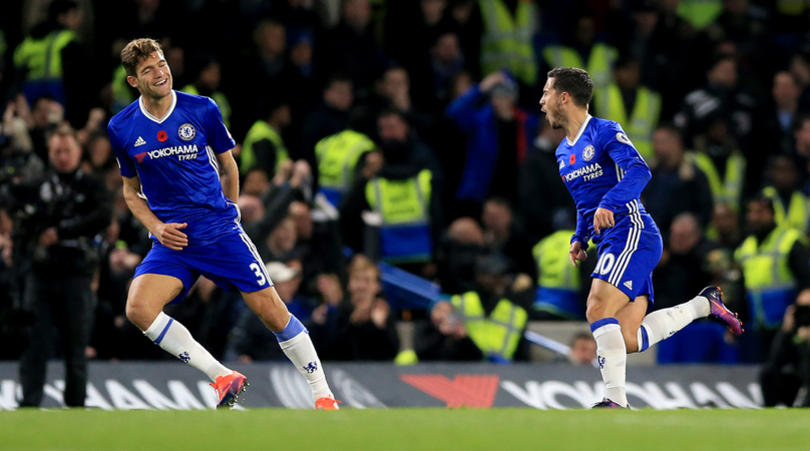
In more fallow times, the Spaniard would probably have squared the ball he received from Cesar Azpilicueta or at least slowed the play down and waited for support. He didn't, instead removing Williams from the game with some gorgeous trickery and surging upfield from 15 yards inside his own half.
It spoke of the player's individual confidence, of course, but also of the assuredness within the Chelsea team. Pedro may have been emboldened by the scoreline, but his little burst of aggression evidenced something deeper: players only try those sort of things when they have faith in their surroundings. Like a sports car that can only reach top speed when its engine is in perfect order, this was Chelsea stepping on the pedal and accelerating freely through the gears.
Among other descriptions – brutal, dominant, cruel – this was a remarkably uninhibited performance. Chelsea's Premier League best has, even at its most dynamic, often possessed an ordered quality. The attacking components within the side over the years have typically had to operate within fairly narrow parameters. Arjen Robben, Frank Lampard, Eden Hazard – the talent has been kept on a leash and that perception has been fairly consistent since the Abramovich rebirth.
The novelty – and excellence – of Saturday, then, lay in its fluidity and freedom. Hazard and Pedro regularly rotated their positions and influenced the game from a broad range of attacking areas: infield, on the opposite side of the pitch and even at the tip of the formation. Everton were poor - Maarten Stekelenburg particularly so - but the visiting defence was also dizzied by the surrounding movement and had few answers to the eclectic threat.
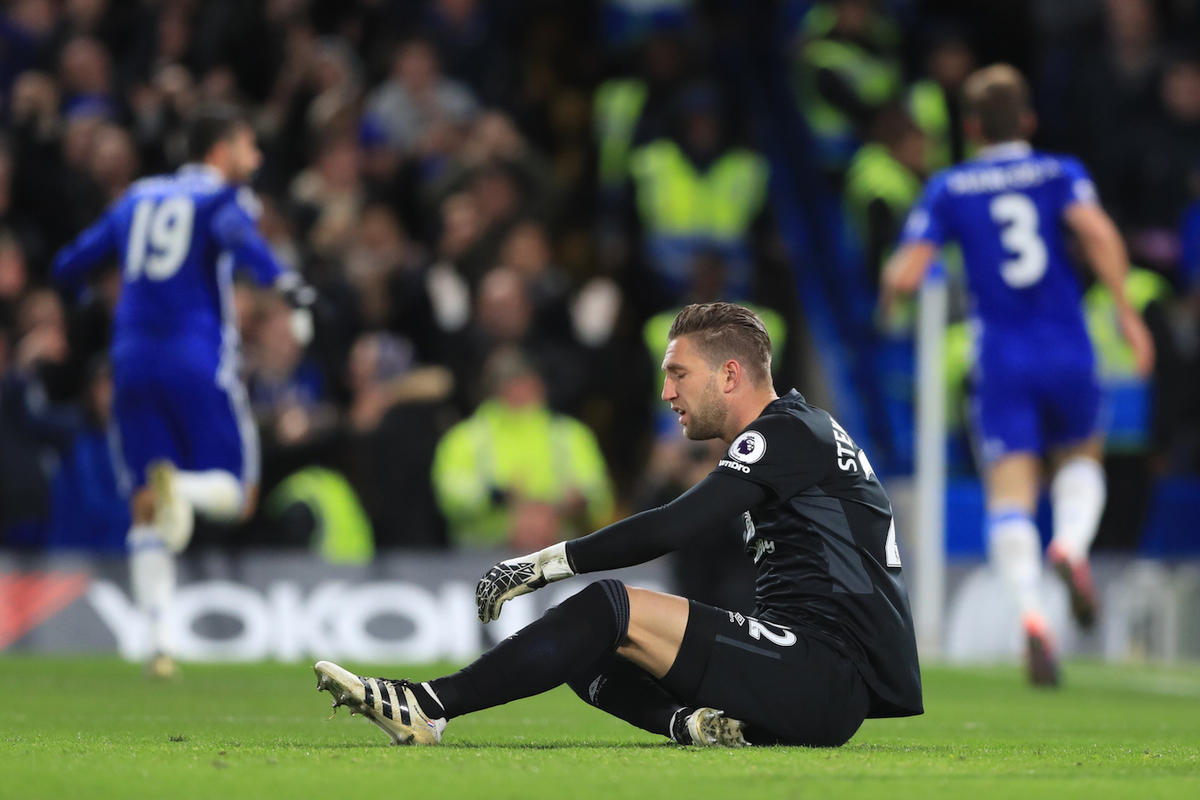
A case in point: the fourth goal. It was a simple enough move with some elaborate, eye-catching execution, but note where it occurred and appreciate its reliance on a chemistry which has grown in double-quick time. A three-dimensional Chelsea is growing in front of our eyes and this was them at their most developed point to date.
Middlesbrough showed terrific spirit to take a point against Manchester City and Liverpool were wonderful to watch on Sunday afternoon, but Conte's side were above them all – as they may well be in May.
Player of the Weekend: Mousa Dembele (for Tottenham against Arsenal)
A choice influenced by circumstance. Tottenham have slumped lately and their inability to score from open play has taken its toll on their collective belief. They were off-colour against Leicester and dismal during the loss to Bayer Leverkusen, which mae a north London derby without Toby Alderweireld, Erik Lamela, and Dele Alli a daunting prospect.
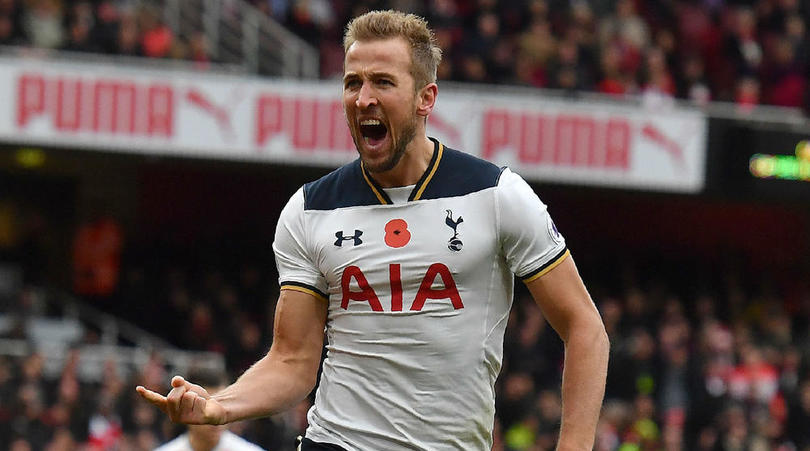
But in such situations, certain players have the opportunity to show their transcendent worth. Either through a bundle of potent intangibles or excellence-by-example leadership, they can quickly cure lingering despondency. That was Dembele's role on Sunday: his ambition, bravery, and technical excellence healed the inferiority complex and emboldened Spurs beyond their recent form.
The importance of Mauricio Pochettino's switch to a 3-4-1-2 formation has perhaps been overstated. Typically, Tottenham employ their full-backs in wing-back roles and, even in their usual 4-2-3-1 shape, the deepest midfielder (usually Eric Dier) is encouraged to regularly drop between the centre-halves. It was a tweak rather than a tactical revolution and the real difference was made by individual performance – and specifically Dembele's.
The Belgian is a decadently gifted footballer. A rare blend of skill and strength, he's incredibly difficult to disposes and, in frantic, derby-like situations, an invaluable asset to his side. Early in the first half against Arsenal, he received possession deep in his own half, spun beyond Arsene Wenger's initial press and carried the ball up field. A minor moment with no lasting consequence, but possibly a key psychological marker.
"Give me the ball, I'm too good for them."
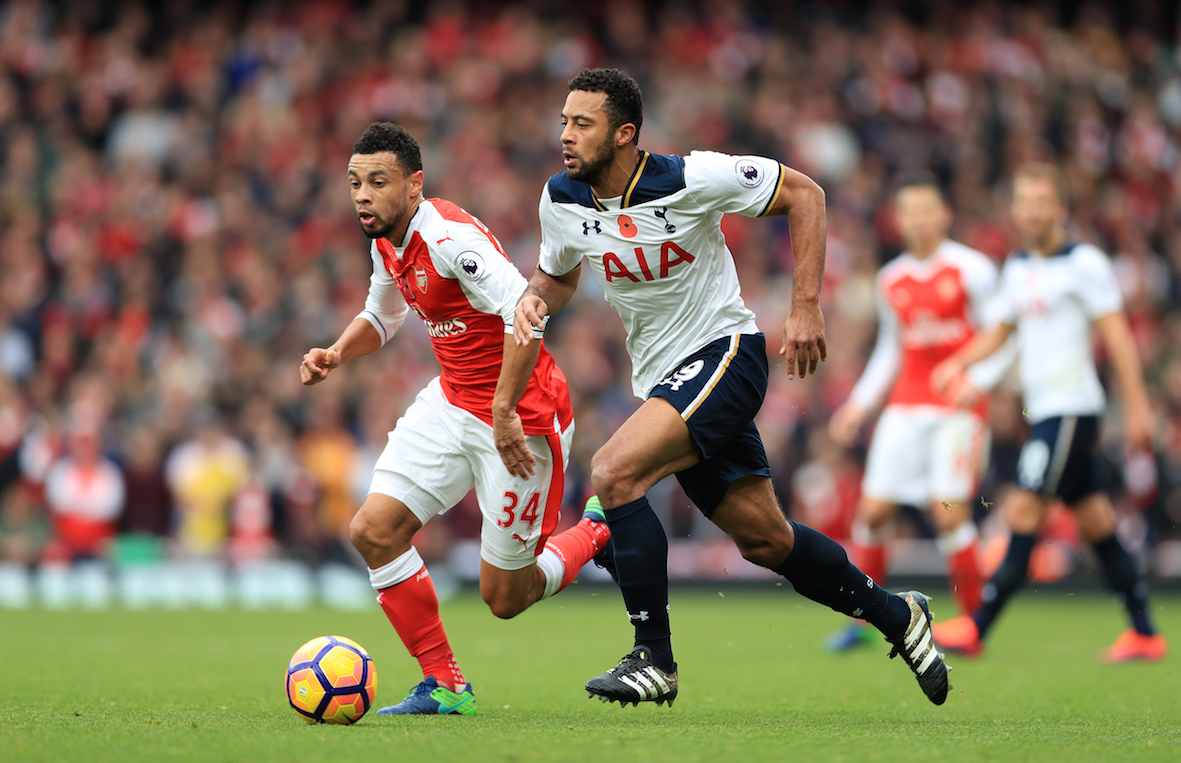
Players feed off that attitude, particularly when they feel vulnerable. At the heart of every strong away showing is something similar and this weekend Dembele was that master ingredient. His bold drive into the home penalty box drew a lazy foul from Laurent Koscielny and an equaliser from the spot, but his 90 minutes were flecked with second-degree influence. He skipped around Arsenal tackles (completing three times as many successful dribbles as any other player), rarely gave the ball away (42 of 47 passes completed) and was as broad-shouldered as any visiting player.
(Dembele is) the baseline, the steady influence and, on Sunday, he was the North London derby's most influential player
Certain attributes are assumed to hold greater weight in derbies and supporters like players who hassle, tackle and run their blood to water. But teams always need to be balanced and that kind of thundering desire must always be matched with quieter elements - the sort embodied by Dembele. Whether an illusion created by his ability or an actual reality, he's an extremely composed player who operates independently of a game's temperament. He's the baseline, the steady influence and, on Sunday, he was the north London derby's most influential player.
That's why he's here. Not because he did anything remarkable or even unusual, but because of where geographically his performance occurred, the conditions under which he gave it and what it ultimately allowed his team to achieve.
Goal of the Weekend: Paul Pogba (for Manchester United against Swansea)
A wonderful goal and a telling celebration: that's the relief of a man who's shouldered a mighty weight this season. And what a hit it was, what a conclusive answer to the derisory chants.

To avoid the pedant's debate about what does and doesn't constitute a half-volley, let's just say this: striking a ball at that height and at that angle is incredibly difficult and, typically, a reliable way for a player to make a fool of himself. Only the special ones – those blessed with wonderful technique and perfect physical attributes – can hit shots like that and only the very best among them can make it look quite so easy.
And that's what Pogba is: special.
He's been lampooned and belittled in a highly suspect way. The typical partisan treatment aside, some of the wording around his performances has possessed an uncomfortable tone. Other players have moved clubs for similar sums of money in the past and yet none of them has been brutalised in quite the same way.
Rather than just being an expensive footballer who's arrived at a club which is in obvious flux, he's more often been treated as a thief, as a mercenary and as if he had a direct influence over what Manchester United chose to pay for him.
That goal was his "finger to the lips" moment. No dab, no dancing, just an old fashioned fist-pump, some wild eyes and an invitation for his detractors to think again.
Moan: The Vagary of the Offside Law
Prompted, of course, by the decision to allow Kevin Wimmer's own goal at the Emirates, but this issue has been bubbling for some time. The rules governing the offside law are baffling.
"Why are the powers that be creating more grey areas?" asked Rio Ferdinand on BT Sport. Perhaps because the more subjective a rule is, the harder it becomes to criticise those applying it.
Even in simpler times, applying the offside rule was arguably the most difficult job an official had. Why, then, has it been made harder?
Rarely does an apparently mistaken offside decision get made without it being tenuously supported by perceived interference or, in Wimmer's case on Sunday, the lack of it. The wording in the rulebook defines an active player as one making a positive action on the ball or impacting on a defender's ability to do the same. Football is rarely that binary, though, and the speed of the modern game must make it extremely difficult for referees or officials to make that active/inactive determination when, first and foremost, their attention is on the defensive line, the ball and the most advanced attacking players.
Even in simpler times, applying the offside rule was arguably the most difficult job an official had. Why, then, has it been made harder?
But aside from the irritation this causes and the general befuddlement among those who have been watching – and understanding – the game for decades, does this not pose a threat to the art of defending? If a centre-back cannot be certain of how a seemingly offside player's actions are going to be interpreted by an assistant referee, then how, for instance, is he able to take up a position with any conviction?
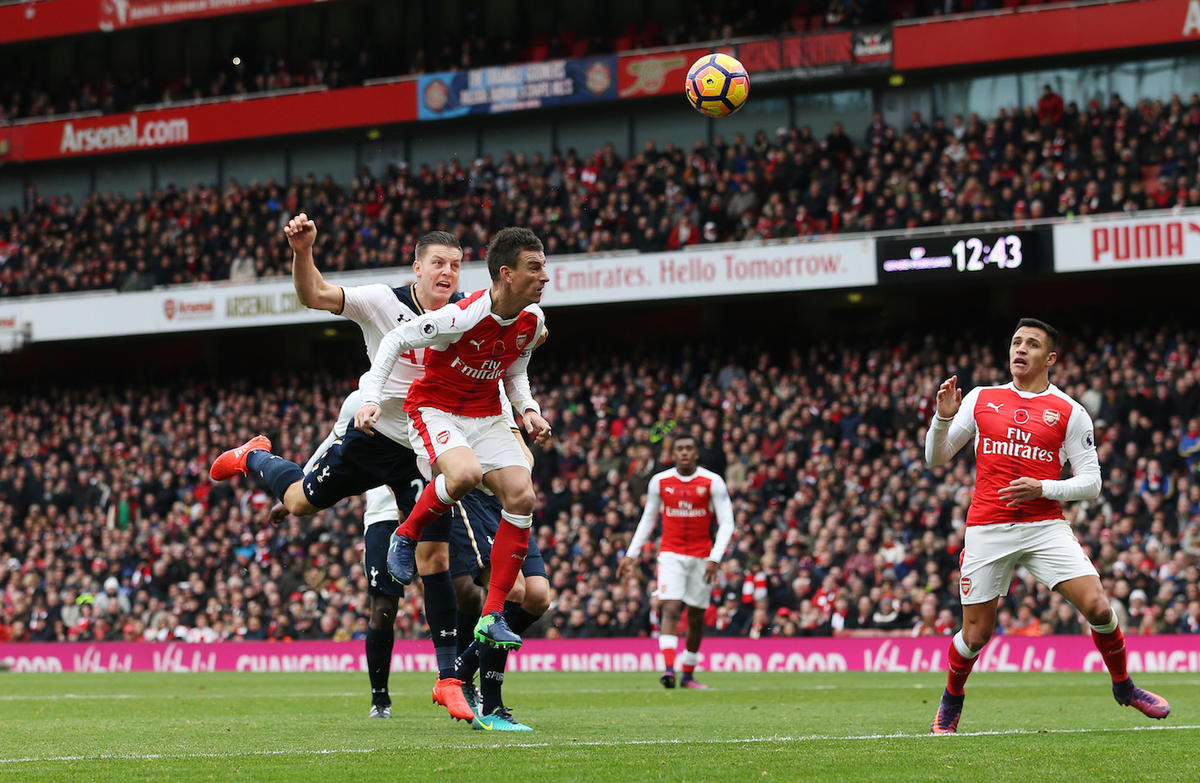
On Sunday, Wimmer's panicked header was a response to three different Arsenal players, two of whom were plainly in offside positions, and that should really have been enough to draw a flag. His physical ability to contact the ball was only limited by the onside Koscielny, but if the position he was in and the decision he made were swayed by offside opponents, that would logically suggest that they played some kind of active role.
The counter point is that, in its original form, the offside rule was overly rigid and stymied entertaining attacking football. But this is just a muddle and nobody – not ex-players, not current coaches and not even Howard Webb – can provide any real clarity.
Asking someone to explain the offside rule used to be a form of mockery. Now it's almost an unanswerable question.
Seb Stafford-Bloor is a football writer at Tifo Football and member of the Football Writers' Association. He was formerly a regularly columnist for the FourFourTwo website, covering all aspects of the game, including tactical analysis, reaction pieces, longer-term trends and critiquing the increasingly shady business of football's financial side and authorities' decision-making.
